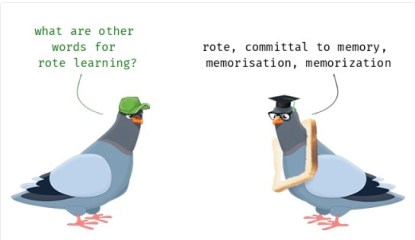Rote Learning and India’s Obsession with it
Kakali Das
Rote Learning and India‘s Obsession with it
Kakali Das

Some of the oldest educational institutions in the world, like Nalanda and Taxila, were located in the Indian subcontinent.
There, debate and discussion between teachers and pupils was at the core of learning. But by the time British traders invaded India in the 17th century, these institutions had all but disappeared, and native education was limited to schooling the elite at Gurukuls and Madrasas.
Though access at these institutions was limited, teaching methods focused on practical knowledge.
For a long time, the British chose to support native learning, and many Orientalist scholars even encouraged the growth of indigenous and local institutions and texts.
But in the 19th century, under the influence of Anglicist officers, English education was introduced in India, in order to school the native Indians in ‘morally superior’ texts and culture of the West. And this is where rote learning enters the picture.
Though the aim was to improve learning, English education, especially when the policy shifted towards mass education, ended up encouraging rote learning, or memorising and copying texts, rather than enabling actual understanding, because they were far removed from the indigenous knowledge, and everyday lives of students.
For an instance, the classic English novels like, ‘King Lear’, ‘Hamlet’ by Shakespeare, or ‘Hard Times’ by Dickens etc., the themes or the contexts in these texts hardly resonated with the humdrum lives of the Indian people.

By the mid-19th century, this kind of English education, and the ability to memorise and restate information became the main criterion for getting jobs in the colonial administration. As this was the first time that jobs in the colonial government was made available to Indians, they quickly became the ultimate marker of success and respectability, especially for the Indian middle class.

Unfortunately, this emphasis on rote learning remains strong in Indian education even post-independence.
Evaluation methods in schools and colleges focused on rote learning instead of holistic development.
A study comparing board exams across the globe found that rote learning was the highest in India and Pakistan. Another study showed that less than 5 percent of engineers educated in India have the analytical skills necessary for software engineering jobs.
But if rote learning doesn’t enable our students to learn the right skills, then why do we continue to emphasise it?
Our abysmal spending and lack of focus on education has meant that India has one of the lowest teacher-ratios in the world. When a single teacher is meant to teach classrooms of an average of 30 to 50 students, rote learning becomes an easy fall-back, because it ensures children can past standardized tests, even if they don’t understand how to solve a problem.

Our education system needs an overhaul, and policy changes within education are trying to address these problems to move away from rote learning and focus on holistic development.
The implementation of National Education Policy 2020 might make a difference, but it will have little effect until we change our societal mind-sets, which equates success with test results.

The greed of scoring high marks has led the students to mug up subject like Mathematics, cover to cover, without being bothered about understanding and analysing the problems and then trying to solve it. SIGH!
We care little about what our children are actually learning, and more about whether they are scoring more than the neighbour’s or friend’s kids. And this mind-set follows us into adulthood and impacts how we view our self-worth and measure success.
And so challenging India’s obsession with rote learning isn’t merely about changing an educational policy.
It is about questioning and moving past this thinking which equates a human being’s worth and potential to how well they score on a superficial result.
Images from different sources
Mahabahu.com is an Online Magazine with collection of premium Assamese and English articles and posts with cultural base and modern thinking. You can send your articles to editor@mahabahu.com / editor@mahabahoo.com ( For Assamese article, Unicode font is necessary)





















